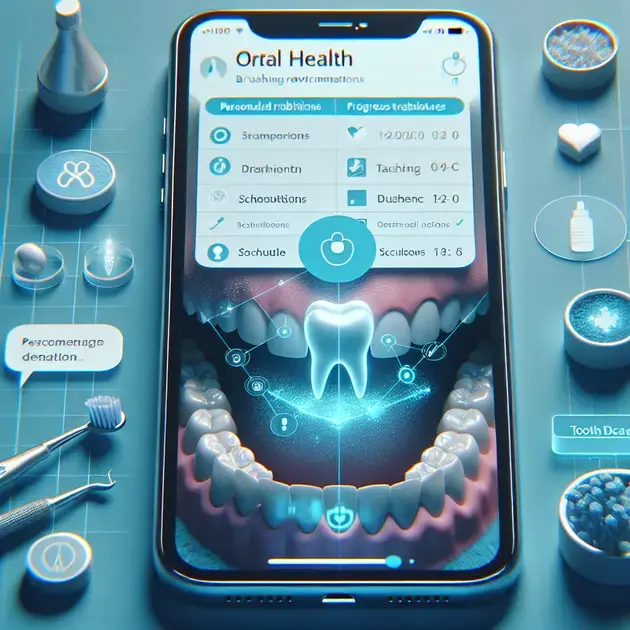Tooth decay and dental caries are common dental issues that affect a large portion of the population worldwide. Understanding the causes, symptoms, and prevention methods of these conditions is crucial for maintaining good oral health.
Recent studies have shown a significant increase in tooth decay among children due to the high consumption of sugary snacks and beverages. This comprehensive guide aims to provide valuable information on how to identify, prevent, and treat tooth decay and dental caries effectively.

Understanding the Importance of Oral Hygiene
Oral hygiene is essential for maintaining overall health and preventing dental issues. Brushing your teeth at least twice a day and flossing daily are key components of good oral hygiene. Using a fluoride toothpaste can help protect against decay and cavities. Additionally, regular visits to the dentist for cleanings and check-ups are crucial for early detection of any potential problems.
One way to ensure proper oral hygiene is by using mobile apps like Brush DJ. This app plays music for two minutes, the recommended time for brushing, making it fun and engaging for users. It also reminds users to floss, change their toothbrush, and schedule dental appointments. By incorporating such apps into your routine, you can improve your oral hygiene habits.
Another useful tool is the Oral-B app, which provides personalized tips and guidance for maintaining good oral health. It tracks your brushing habits, offers feedback, and suggests areas for improvement. By following the app’s recommendations, you can enhance your oral hygiene practices and reduce the risk of developing dental issues.
Remember, oral hygiene is not just about having a bright smile; it is also crucial for your overall well-being. By investing time and effort into maintaining good oral health, you can enjoy a healthy mouth and body for years to come.
Identifying Common Causes of Tooth Decay
Tooth decay is a prevalent dental issue that can lead to cavities and other complications if left untreated. Poor oral hygiene, sugary foods and drinks, and bacteria in the mouth are common causes of tooth decay. Additionally, frequent snacking and consuming acidic foods can contribute to the erosion of tooth enamel, making them more susceptible to decay.
One way to identify tooth decay early is by using the Teledentistry app. This app allows users to consult with dentists remotely, providing a convenient way to address any concerns or symptoms of tooth decay. Through virtual appointments and assessments, dentists can diagnose decay and recommend appropriate treatment options.
Another tool for identifying tooth decay is the Tooth Defender app, which educates users on the signs and symptoms to look out for. By learning about the early indicators of decay, such as tooth sensitivity and discoloration, individuals can take proactive steps to address the issue before it worsens. This app also offers tips on maintaining good oral hygiene to prevent decay.
By staying informed and vigilant about the common causes of tooth decay, you can take proactive measures to protect your dental health and preserve your natural teeth. Early detection and prompt treatment are key to preventing more extensive dental problems in the future.
Preventive Measures for Dental Caries
Dental caries, also known as cavities, can be prevented through various preventive measures. Limiting sugary and acidic foods in your diet can help reduce the risk of developing caries. Additionally, maintaining good oral hygiene practices, such as brushing with fluoride toothpaste and flossing daily, is essential for preventing the formation of cavities.
One effective way to prevent dental caries is by using the Colgate Connect app. This app tracks your brushing habits and provides real-time feedback on your technique. It also offers personalized recommendations for improving your oral care routine, including reminders to brush and floss regularly. By following the app’s guidance, you can strengthen your preventive efforts against caries.
Another important preventive measure is regular dental check-ups and cleanings. Apps like mydentist Mobile allow users to schedule appointments, receive reminders for upcoming visits, and access personalized oral care tips. By staying proactive about your dental health and seeking professional care regularly, you can reduce the likelihood of developing caries.
Remember, prevention is key when it comes to dental caries. By implementing these preventive measures and incorporating helpful apps into your oral care routine, you can safeguard your teeth against decay and enjoy a healthy smile for years to come.

The Role of Sugar in Tooth Decay
Sugar plays a significant role in the development of tooth decay. When we consume sugary foods and drinks, the bacteria in our mouths feed on the sugars and produce acids as a byproduct. These acids can erode the enamel, which is the protective outer layer of our teeth. Over time, this erosion can lead to cavities and other dental issues.
It is essential to limit the intake of sugary foods and drinks to prevent tooth decay. Brushing and flossing regularly can help remove plaque buildup and reduce the impact of sugar on the teeth. Visiting the dentist for regular check-ups and cleanings is also crucial in maintaining good oral health.
Children are particularly vulnerable to tooth decay caused by sugar. Parents should encourage healthy eating habits and limit sugary snacks to protect their children’s teeth. Choosing water or milk as beverages instead of sugary sodas can also help prevent tooth decay.
Understanding the role of sugar in tooth decay is essential for maintaining a healthy smile. By making smart dietary choices and practicing good oral hygiene, we can reduce the risk of cavities and other dental problems associated with sugar consumption.
Factors Contributing to Enamel Erosion
Enamel erosion can be caused by various factors beyond just sugar consumption. Acidic foods and drinks, such as citrus fruits and sodas, can also contribute to enamel erosion. The acids in these items can weaken the enamel and make it more susceptible to damage.
Bruxism, or teeth grinding, can also wear down the enamel over time. This condition puts excessive pressure on the teeth, leading to erosion and other dental issues. Poor oral hygiene habits, such as infrequent brushing and flossing, can further exacerbate enamel erosion.
Medical conditions like acid reflux or gastrointestinal disorders can introduce additional acid into the mouth, further accelerating enamel erosion. It is essential to address these underlying health issues to prevent significant damage to the enamel.
Preventive measures, such as using fluoride toothpaste and mouthwash, can help strengthen the enamel and protect it from erosion. Dentists may also recommend dental sealants to provide an additional layer of protection for the teeth. Being mindful of the factors contributing to enamel erosion can help preserve the integrity of our teeth over time.
The Impact of Poor Nutrition on Dental Health
Poor nutrition can have a detrimental effect on dental health, leading to various oral issues. A diet high in sugar and processed foods can increase the risk of tooth decay and cavities. Lack of essential nutrients, such as calcium and vitamin D, can weaken the teeth and make them more vulnerable to decay.
Fast food and sugary snacks can contribute to the buildup of plaque, a sticky film of bacteria that can erode the enamel and cause gum disease. Poor nutrition can also affect overall immune function, making it harder for the body to combat oral infections and inflammation.
Inadequate intake of water can lead to dry mouth, a condition that reduces saliva production and increases the risk of cavities. Saliva plays a crucial role in washing away food particles and neutralizing acids in the mouth. Without enough saliva, the mouth becomes more susceptible to bacterial growth and dental issues.
Eating a balanced diet rich in fruits, vegetables, lean proteins, and whole grains is essential for maintaining good dental health. Drinking plenty of water and avoiding sugary and acidic foods can help protect the teeth from decay and erosion. By prioritizing nutrition and oral hygiene, we can safeguard our smiles for years to come.
Conclusion
In conclusion, understanding the significant role that sugar plays in tooth decay is crucial for maintaining optimal oral health. Consuming sugary foods and drinks can lead to the production of acids by mouth bacteria, which in turn can erode the protective enamel of our teeth, ultimately resulting in cavities and other dental issues. Limiting sugar intake, practicing proper oral hygiene through regular brushing and flossing, and scheduling routine dental check-ups are essential steps in preventing tooth decay.
Moreover, factors beyond sugar consumption, such as acidic foods, teeth grinding, and certain medical conditions, can also contribute to enamel erosion. Addressing these factors and adopting preventive measures like using fluoride products and dental sealants can help safeguard the integrity of our teeth over time. By being mindful of these contributors to enamel erosion, we can better protect our dental health.
Additionally, the impact of poor nutrition on dental health cannot be understated. A diet rich in sugar and lacking essential nutrients can increase the risk of tooth decay, plaque buildup, and gum disease. Ensuring a balanced diet with adequate water intake, along with avoiding sugary and acidic foods, is essential for preserving dental health. By prioritizing good nutrition and proper oral hygiene practices, we can maintain healthy smiles and prevent oral health issues in the long run.